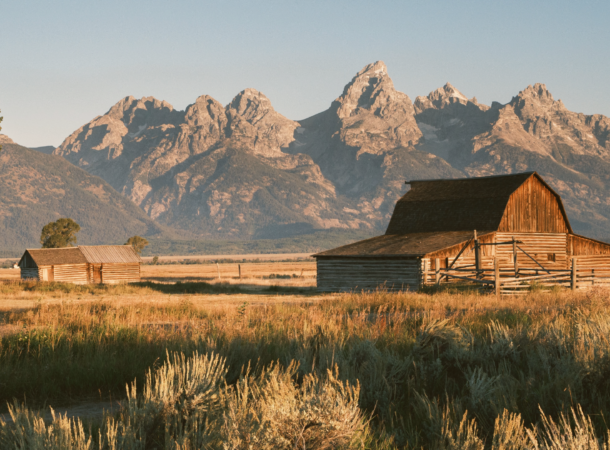
Most Conservative Countries in 2024
The term “conservative” appears often in discussions about politics or religion. But, what does it mean?
In simple terms, conservatism is a mindset that aims to preserve the existing state of things instead of trying out new solutions that might or might not make things better. It’s often seen as the opposite of liberalism, which is more willing to experiment with and adopt fresh ideas.
In this article, we will discover the most conservative countries in the world, where tradition takes center stage.
Conservatism in the Global Scale
At its core, conservatism signifies a philosophical perspective favoring preservation over transformation, a preference for time-tested customs over unproven alternatives. Often viewed as a counterpoint to liberalism, which champions innovation and novelty, conservatism typically holds fast to time-honored, religious values, staunchly defending them against perceived threats of change. While the nuances of conservatism often differ across borders, these fundamental principles remain consistent.
Conservatism, a broad and influential ethos, permeates various dimensions of governance, yet its influence may not spread to every aspect of a country. A nation might exhibit conservatism in societal matters, yet embrace liberalism economically. Furthermore, conservatism has a chameleon-like adaptability, shifting hues based on the socio-cultural backdrop. For instance there is considerable disparity between conservatism in the US and in the Middle Eastern countries.
Another complication in assessing conservatism arises from the restrictive information policies prevalent in many staunchly conservative nations. Although this makes analytical comparisons arduous, by employing several measures, we can have an understanding of a nation’s positioning on the conservatism spectrum.
20 Most Conservative Countries in the World
The following are the 20 most conservative countries in the world.
Ranking | Country | 2023 Population |
20 | Morocco | 37,840,044 |
19 | Turkey | 85,816,199 |
18 | Burkina Faso | 23,251,485 |
17 | Cambodia | 16,944,826 |
16 | Jordan | 11,337,052 |
15 | Liberia | 5,418,377 |
14 | Kuwait | 4,310,108 |
13 | Bangladesh | 172,954,319 |
12 | Angola | 36,684,202 |
11 | Nepal | 30,896,590 |
10 | Ethiopia | 126,527,060 |
9 | Eswatini | 1,210,822 |
8 | Lebanon | 5,353,930 |
7 | Saudi Arabia | 36,947,025 |
6 | Egypt | 112,716,598 |
5 | Chad | 18,278,568 |
4 | Pakistan | 240,485,658 |
3 | Iran | 89,172,767 |
2 | Mali | 23,293,698 |
1 | Yemen | 34,449,825 |
Common Characteristics of Conservative Countries
📜 Tenacious commitment to age-old, frequently faith-based, customs and principles.
🔄 Predilection for safeguarding existing social structures and norms, demonstrating caution towards abrupt or transformative changes.
💡 Economic conservatism could vary, with some nations favoring free market capitalism while others might espouse protectionist policies.
🌱 Despite a common conservative ethos, societal and cultural nuances may alter its manifestation. For instance, conservatism’s expression in Western countries could focus on fiscal discipline, individual liberties, and limited government intervention, whereas in Eastern societies, it may be intertwined with religious adherence and traditional societal norms.
👥 Notably, the approach to individual freedoms and rights, especially concerning women and minority groups, can vary widely among conservative societies.
🔒 Typically, a stringent stance on law and order, emphasizing national security and traditional legal frameworks.
📚 In education, there’s often a strong emphasis on traditional curriculum, focusing on cultural heritage and national history.
🕌 Depending on the dominant religion, the role and influence of religious institutions and leaders can vary significantly.
Methodology
In 2017, Business Insider published a compilation of the world’s 25 most conservative nations, employing data aggregated by MoveHub. This data originated from a range of research initiatives such as the Gender Gap Report by the World Economic Forum, the Social Progress Index, the Environmental Performance Index, and the Democracy Index by the Economist. These research efforts assess nations on several parameters including religious freedom, press liberties, and gender equality.
Countries that veer towards the conservative end of the spectrum typically demonstrate limited progress in these areas. The countries that stood out as the most liberal were Iceland, Finland, and Sweden. For a detailed overview of the most conservative countries, refer to the list and table provided further in this document.
Most Liberal Countries
Country | MoveHub 2022 | MoveHub 2017 | Politic-Ed 2020 |
Australia | 10 | 15 | 5 |
Germany | 9 | 13 | 10 |
Canada | 8 | 11 | 15 |
Switzerland | 7 | 7 | 6 |
New Zealand | 6 | 5 | 1 |
Iceland | 5 | 1 | – |
Finland | 4 | 2 | 3 |
Denmark | 3 | 8 | 13 |
Sweden | 2 | 3 | 8 |
Most Conservative Countries: Conclusion
As we conclude this global exploration, we realize the profound sway of conservatism across diverse national landscapes. From Yemen’s tribal traditions to Eswatini’s monarchical customs, each nation tells a unique story of conservatism that colors its social, economic, and political life. The staunch adherence to age-old norms and values highlights the intricate dance between progress and preservation, often leading to societal challenges and resistance to change.
While conservatism presents its unique set of complexities, it also invites us to comprehend the vast array of cultural idiosyncrasies shaping our world. Understanding the nuances of this vast political spectrum not only provides insight into these societies but also allows us to grapple with the universal quest for balance between tradition and transformation—a quest that continues to mold the narratives of nations worldwide.
Related Articles
Frequently Asked Questions
What are some of the most conservative countries in the world?
The most conservative countries span a variety of regions worldwide, often characterized by firm adherence to traditional values and social institutions. Countries such as Yemen, Iran, and Saudi Arabia are known for their conservative stance.
How do conservative countries typically view same-sex marriage?
In many conservative countries, same-sex marriage is often not legally recognized. Their cultural fabric, which leans heavily on traditional and social institutions, might not align with the concept of same-sex marriage, underscoring a crucial difference between these nations and their more liberal counterparts.
What does being a conservative country entail?
A conservative country is typically marked by an emphasis on conservative values, often linked to traditional practices and social norms. Factors such as religious tolerance, societal norms, and the country's culture play significant roles in shaping its conservative landscape.
How does European conservatism differ from that of other regions?
European conservatism, especially in Western Europe, often centers on preserving cultural heritage and societal norms, while also balancing modern democratic principles. It differs from conservatism in other regions, like the Middle East, which might be shaped by factors like the Islamic Revolution.
Does every conservative country in the world suppress religious tolerance?
Not necessarily. The level of religious tolerance varies among conservative countries. Some might maintain stringent religious norms, while others may display a certain level of religious tolerance within their traditional framework.
Do conservative countries acknowledge gender identity?
Recognition of gender identity varies among conservative countries. While some may strictly adhere to binary gender norms due to their conservative values, others might slowly be evolving to recognize the spectrum of gender identity.
Why is North Korea considered a highly conservative country?
North Korea, often seen as one of the most conservative countries, maintains an authoritarian political structure and limited personal freedoms. Its policies are guided by strict ideologies, often isolating it from global norms.
How does conservatism in Western Europe differ from that of North Korea?
While both Western Europe and North Korea have elements of conservatism, they manifest quite differently. Western European conservatism often involves preserving cultural identity and norms within a democratic framework, while North Korea's conservatism leans towards strict governmental control and limited personal liberties.




![Safest Countries in the Middle East [2024]](https://www.theblogler.com/wp-content/uploads/2023/03/Safest-Countries-in-the-Middle-East-GVF-Article-Header-Mariam-Soliman-Unsplash-610x450.png)

